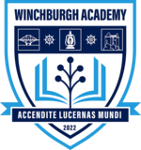Science
Information on Science
What?
- Learners at the centre.
- Development of essential skills to prepare our young people for future key employment sectors in WL e.g. health sector, engineering and construction.
- Develop scientifically literate citizens with a lifelong interest in science.
- To develop their interest and understanding in the living, material and physical world.
- Make the learning experience relevant to day to day life.
- Make connections between different concepts, knowledge and skills in the sciences and other curricular areas (true interdisciplinary).
- Pupils can recognise each of the discrete sciences.
- Raise awareness of STEM education.
- Development of essential skills to prepare our young people for future key employment sectors in WL e.g. health sector, engineering and construction.
- Develop scientifically literate citizens with a lifelong interest in science.
- To develop their interest and understanding in the living, material and physical world.
- Make the learning experience relevant to day to day life.
- Make connections between different concepts, knowledge and skills in the sciences and other curricular areas (true interdisciplinary).
- Pupils can recognise each of the discrete sciences.
- Raise awareness of STEM education.
How?
- Learner voice - focus groups, take on board when planning, reviewing and evaluating.
- In addition to content knowledge, science is a vehicle for skills delivery, courses will be designed to develop transferable skills through a range of approaches.
- Working with primary colleagues - Content will be built on prior knowledge covered in the primary science curriculum.
- Collaboration/Planning with colleagues during planning to allow for IDL - identify opportunities for links/team teaching.
- Creation of an integrated course with topics covering all three sciences.
- STEM club/family STEM learning (LHS)
Why?
- Learner voice important - is a key aspect of building an effective curriculum.
- My job to promote the sciences and encourage the next generation of scientists.
- Development of essential skills will prepare our young people for life in an ever-changing world.
- Knowing where our students have come from will help us support them where they are going.
- Knowing the discrete sciences helps to allow for informed choices later in school.
- Raise the 'STEM capital' of families.




